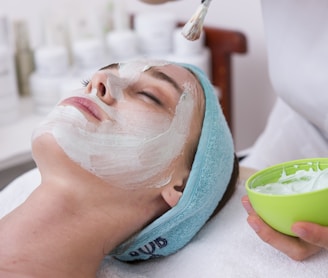The Psychology of Beauty: How Self-Care Boosts Confidence
Discover the profound psychological impact of beauty routines and self-care practices on confidence and overall well-being in this comprehensive article.
BEAUTY AND SKIN CARE
7/22/20233 min read


Introduction
In today's fast-paced and appearance-focused world, the pursuit of beauty and self-care practices has become more than just a routine; it has evolved into a powerful psychological phenomenon. The link between beauty routines and self-esteem is undeniable, as individuals find solace, confidence, and improved well-being through their self-care rituals. In this comprehensive article, we delve deep into the psychological impact of beauty routines and self-care practices on confidence and overall well-being, exploring the science behind these connections and their profound effects on individuals' lives.
Understanding the Psychology of Beauty
Beauty has always been a subject of fascination and admiration across cultures and generations. While physical attractiveness is often the first aspect that comes to mind, beauty encompasses a much broader spectrum. It extends to the emotional, mental, and spiritual aspects of an individual's well-being. Embracing beauty through self-care practices is more than just a superficial endeavor; it nurtures the mind and soul as much as the body.
The Science of Self-Care and Confidence
Numerous scientific studies have explored the relationship between self-care and confidence. Engaging in regular beauty routines, such as skincare, hair care, and grooming, triggers a positive psychological response. When individuals take the time to care for themselves, they feel more in control of their lives, experience reduced stress levels, and exhibit higher self-esteem.
The Role of Rituals in Building Confidence
Beauty routines are often accompanied by rituals that evoke a sense of mindfulness and serenity. These rituals create a sacred space for individuals to focus solely on themselves, promoting a deeper connection to their inner selves. The repetitive nature of beauty rituals, such as applying skincare products or performing makeup routines, can have a meditative effect, calming the mind and elevating confidence levels.
The Empowerment of Self-Expression
Beauty routines and self-care practices provide individuals with a platform for self-expression. Through makeup, hairstyles, and fashion choices, people can outwardly express their inner identities and boost their self-confidence. This empowerment through self-expression fosters a sense of authenticity and belonging, positively impacting mental and emotional well-being.
The Impact of Positive Reinforcement
When individuals engage in self-care and beauty practices, they often receive positive reinforcement from others. Compliments on appearance, glowing skin, or a well-put-together outfit reinforce a positive self-image. This positive feedback loop boosts confidence and encourages individuals to continue their self-care routines, nurturing a cycle of self-love and appreciation.
The Link Between Physical and Mental Well-Being
Beauty routines and self-care practices go beyond external appearances; they also influence an individual's mental well-being. Taking care of one's body and appearance sends powerful signals to the brain, promoting feelings of self-worth and fostering a positive mindset. When individuals feel good about how they look, it can alleviate symptoms of anxiety and depression, leading to improved mental health.
Cultivating Mindfulness and Present-Moment Awareness
Self-care rituals often involve a focus on the present moment. Whether it's the gentle massage of skincare products onto the skin or the precise application of makeup, these acts require mindfulness and concentration. Cultivating mindfulness through beauty routines helps individuals detach from stressors and anxieties, promoting mental clarity and confidence.
Strengthening Social Connections
Engaging in self-care and beauty rituals can also strengthen social connections. Shared experiences, such as spa days with friends or trying out new makeup looks with loved ones, create bonds and enhance a sense of belonging. Social interactions foster feelings of acceptance and support, further elevating an individual's confidence and well-being.
Empowerment Through Acceptance
Self-care practices encourage self-acceptance and self-compassion. As individuals care for their bodies and minds, they learn to embrace imperfections and focus on what makes them unique. This journey of self-empowerment through acceptance leads to heightened confidence and resilience in the face of challenges.
Conclusion
The psychology of beauty and self-care unveils a profound connection between physical, mental, and emotional well-being. Engaging in beauty routines and self-care practices empowers individuals to embrace their authentic selves, cultivate mindfulness, and experience increased confidence and overall well-being. It is a transformative journey that goes beyond aesthetics and delves into the depths of the human psyche, allowing individuals to discover the beauty within themselves.
Remember, self-care is not a luxury but a necessity for nurturing your confidence and well-being. Embrace your beauty rituals, cherish your self-care moments, and let your inner radiance shine brightly for the world to see.
Location
Nagpur, Maharashtra, India
Hours
Mon-Sat 9:00-18:00
Sun Closed
Contact
whitelanehealthcare@gmail.com


